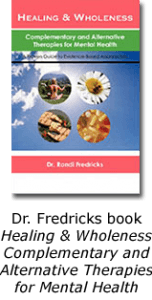Couples Therapy and Addiction

Please note that I have suspended doing couples counseling for the foreseeable future. Thank you for your understanding.
There are many different types of addiction therapy that are important in addiction treatment including couples therapy.
There are four stages that individuals, couples, and families affected by addiction pass through;
- Using
- Transition
- Early recovery
- Ongoing recovery.
This model can be used successfully to treat couples affected by all types of addiction, including gambling, drugs, video-gaming, and sex addiction.
According to this model, couples therapy helps by addressing problems that have occurred in the relationship because of the addiction. When the addict is using, the relationship becomes restrictive and rigid, and that adaptation creates pathology within the couple.
This pathology often makes achieving abstinence more difficult for the addict just as it makes recovery for the codependent more challenging. The defense strategies that the couple developed in an effort to cope and preserved stability eventually causes more trauma, developmental arrest, and psychopathology.
Models for Couples Therapy and Addiction
For the couple to recover, the unhealthy relationship system must collapse, and the defensive structures that maintain the pathology must change. In couples counseling, the three major goals for treating the couple affected by addiction are:
- Creating interventions aimed at supporting the addict in changing.
- Interventions aimed at improving the quality of the couple.
- Ongoing relapse prevention for the addict.
These interventions are considered phases of recovery for the couple. The first phase is treatment for the addict, the second is an adjustment for the couple and/or family, and the third phase is a lifestyle-building phase that promotes recovery for both.
For therapy to be effective with the couple affected by addiction, it must be directive, psychoeducational, and provide concrete steps that can be taken by both partners to change the patterns of addiction that impact them.
It’s important that each partner’s recovery programs are relatively in sync. The scenario with the highest probability of success is a couple who presents as a unit deciding that the couple wants to go in the direction of recovery.
If either partner is in denial, the couple will present as unfocused in couples therapy because there is no shared problem. The first step towards reaching this sync is getting both partners into recovery. Once both partners are in recovery, they can begin the transition phase by working on a joint treatment plan in couples counseling.
Creating Common Goals in Couples Therapy
 In couples therapy for couples affected by addiction, I begin by asking each person what their common goals are in couples therapy and in their marriage, and how they think they could get their individual recovery programs into sync and still maintain healthy boundaries.
In couples therapy for couples affected by addiction, I begin by asking each person what their common goals are in couples therapy and in their marriage, and how they think they could get their individual recovery programs into sync and still maintain healthy boundaries.
Harvard Medical School has performed a number of large scale review studies into the effectiveness of couples counseling and Al-Anon in the treatment of the alcoholic and their family.
Behavioral Couples Therapy
A 2003 study at Harvard reviewed several studies on marital and family therapy (MFT), Al-Anon, and psychotherapy and determined that when used together by family members, the combination was predictive of the alcoholic’s success in staying sober. The researchers recommended behavioral couples therapy (BCT), a type of marital and family therapy used in alcoholism treatment.
According to the study’s authors, marital therapy combined with BCT “is clearly more effective than individual treatment at increasing abstinence and improving relationship functioning. BCT also reduces social costs, domestic violence, and emotional problems of the couple’s children.” I use a combination of different theories with working with couples and addiction to help get the relationship back on track.





